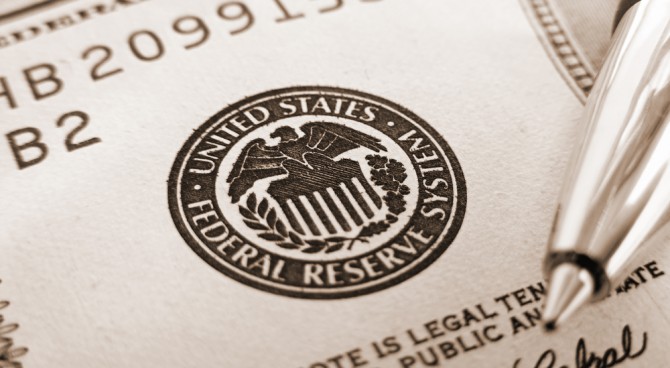Her vision of ‘accountable capitalism’ would destroy savings built over a lifetime—and sink the economy.
By Phil Gramm and Mike Solon
Sept. 10, 2019 6:41 pm ET
Who owns the vast wealth of America? Old folks. According to the Federal Reserve, households headed by people over the age of 55 own 73% of the value of domestically owned stocks, and the same share of America’s total wealth. Households of ages 65 to 74 have an average of $1,066,000 in net worth, while those between ages 35 and 44 have less than a third as much on average, at $288,700.
A socialist might see injustice in that inequality. But seniors know this wealth gap is the difference between the start and the finish of a career of work and thrift, making the last mortgage and retirement payments rather than the first. Seventy-two percent of the value of all domestically held stocks is owned by pension plans, 401(k)s and individual retirement accounts, or held by life insurance companies to fund annuities and death benefits. This wealth accumulated over a lifetime and benefits all Americans.
That means it’s your life savings on the line—not the bankroll of some modern-day John D. Rockefeller—when Democrats push to limit companies’ methods of enriching their shareholders. Several Democratic congressmen and presidential candidates have proposed to limit stock buybacks, which are estimated to have increased stock values by almost a fifth since 2011, as well as to block dividend payments, impose a new federal property tax, and tax the inside buildup of investments. Yet among all the Democratic taxers and takers, no one would hit retirees harder than Sen. Elizabeth Warren.
Her “Accountable Capitalism Act” would wipe out the single greatest legal protection retirees currently enjoy—the requirement that corporate executives and fund managers act as fiduciaries on investors’ behalf. To prevent union bosses, money managers or politicians from raiding pension funds, the 1974 Employee Retirement Income Security Act requires that a fiduciary shall manage a plan “solely in the interest of the participants and beneficiaries . . . for the exclusive purpose of providing benefits to participants and their beneficiaries.” The Securities and Exchange Commission imposes similar requirements on investment advisers, and state laws impose fiduciary responsibility on state-chartered corporations.
Sen. Warren would blow up these fiduciary-duty protections by rewriting the charter for every corporation with gross receipts of more than $1 billion. Every corporation, proprietorship, partnership and limited-liability company of that size would be forced to enroll as a federal corporation under a new set of rules. Under this new Warren charter, companies currently dedicated to their shareholders’ interest would be reordered to serve the interests of numerous new “stakeholders,” including “the workforce,” “the community,” “customers,” “the local and global environment” and “community and societal factors.”
Eliminating corporations’ duty to serve investors exclusively and forcing them to serve political interests would represent the greatest government taking in American history. Sen. Warren’s so-called accountable capitalism raids the return that wealth provides to its owners, the vast majority of whom are present or near retirees. This subversion of capitalism would hijack Americans’ wealth to serve many new masters who, unlike shareholders, don’t have their life savings at stake in the companies that are collectivized.
After dividing retirees’ rightful earnings eight ways to serve the politically favored, the Warren charter goes on to require that “not less than 2/5 of the directors of a United States corporation shall be elected by the employees.” With a mandate to share profits with seven other interest groups and 40% of the board chosen by non-investors, does anybody doubt that investors’ wealth would be quickly devoured?
At best, every U.S. company with gross revenues over $1 billion would be suddenly coerced into operating like a not-for-profit. But unlike legally recognized Benefit Corporations, the companies would be redirected to multiple competing purposes. A new Office of U.S. Corporations would decide—and lawyers would sue to determine—whether those interests are satisfied, and only then would retirees receive the remaining crumbs. Only in Sen. Warren’s socialist heaven would workers continue to sweat and sacrifice while their rewards go to publicly favored groups.
It is the fiduciary responsibility of every investment adviser, pension fund, 401(k), IRA and life insurance company to tell its clients what would happen to their investments under Sen. Warren’s bill. Her plan would devastate the income-generating capacity of every major company in America and decimate their market value in the process.
If the bill were passed, retirement plans and investors could attempt to sell their stocks and find new investments where their money would still work for them. They could sell their shares in the large companies subject to Sen. Warren’s dispossession and buy into smaller companies with receipts below the $1 billion threshold, or look for investments abroad.
The problem is that everybody else would be trying to do the same. Investments built over a lifetime would be sold in a fire sale, with limited alternatives purchased in panic buying. While no econometric model could give a reliable estimate of the wealth destruction, no knowledgeable observer could doubt that an economic cataclysm would follow such a policy. “Accountable capitalism” would hit present and near-retirees first and hardest, followed by American workers and the rest of the economy.
Sen. Warren would roll back the economic Enlightenment that gave us private property and economic freedom, and plunge us back into the communal world of the Dark Ages. Like the village, guild, church and crown of yore, government-empowered special interests would once again be allowed to extort labor and thrift. When capital is no longer protected as private property and is instead redefined as a communal asset, prosperity and freedom will be the greatest casualties.
Socialism always destroys wealth; it doesn’t redistribute it. Unfortunately, this great truth is far from self-evident. Whether current and near-retirees will stand up and fight for their retirement savings will effectively gauge the survival instinct of our country, and our willingness to preserve the economic system that built it.
Mr. Gramm, a former chairman of the Senate Banking Committee, is a visiting scholar at the American Enterprise Institute. Mr. Solon is a partner of US Policy Metrics.





